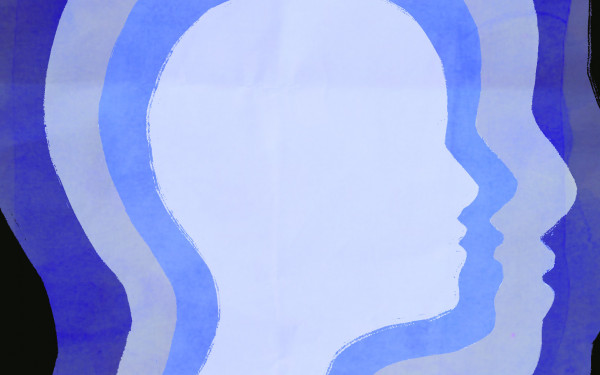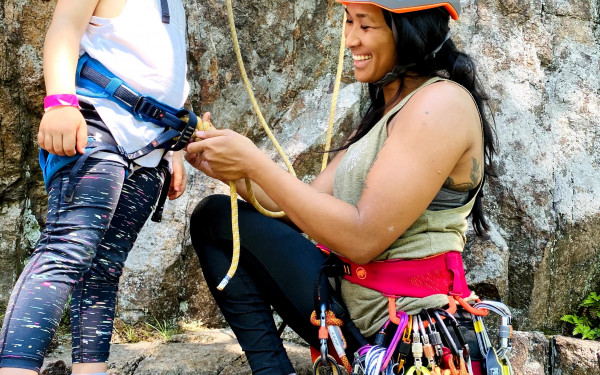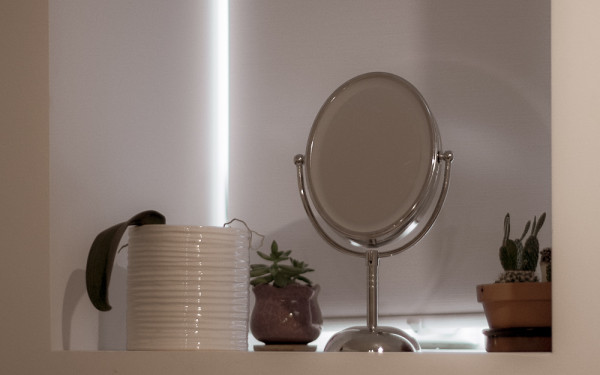How homegrown tattoo artists are revamping old school ink
Montreal’s tattoo scene is seeing a new wave of inclusive tattooing coming from a younger generation. Photo Ivan de Jacquelin
More people are opting for in-home studios instead of traditional tattoo parlours
One out of five Canadians sport at least one tattoo.
If you’ve ever gotten one, you probably remember your first time like it was yesterday. Getting your first ink stays with you forever, both in your mind and on your skin. For some, that kind of commitment can be intimidating.
Inexperience, fear of judgment, and having a 40-year-old tattoo-covered artist leaning over you with a needle can often make first-time clients uncomfortable. Many are afraid to overstep and can’t do much other than trust the artist. This power dynamic creates an environment where it’s easy for people with abusive tendencies to take advantage, and in recent years, Montreal’s tattoo industry has been rocked with allegations of sexual harassment and abuse.
Several artists from the Montreal tattoo scene have said their customers shared stories of abuse and disrespect regarding intimacy. They’ve also said it’s an open secret within people of the industry that some shops still make it hard for those who are not part of the dominant white old school biker tattoo culture to get apprenticeships, and a number of tattoo parlours allegedly pay female artists less than males.
However, Montreal’s tattoo scene is seeing a new wave of inclusive tattooing coming from a younger generation of up-and-coming tattoo artists who feel like the industry isn’t making enough space for them. They say they want to reclaim the industry and make it a better, friendlier place for expression that is also accessible to any creative spirit that puts their mind and body to it.
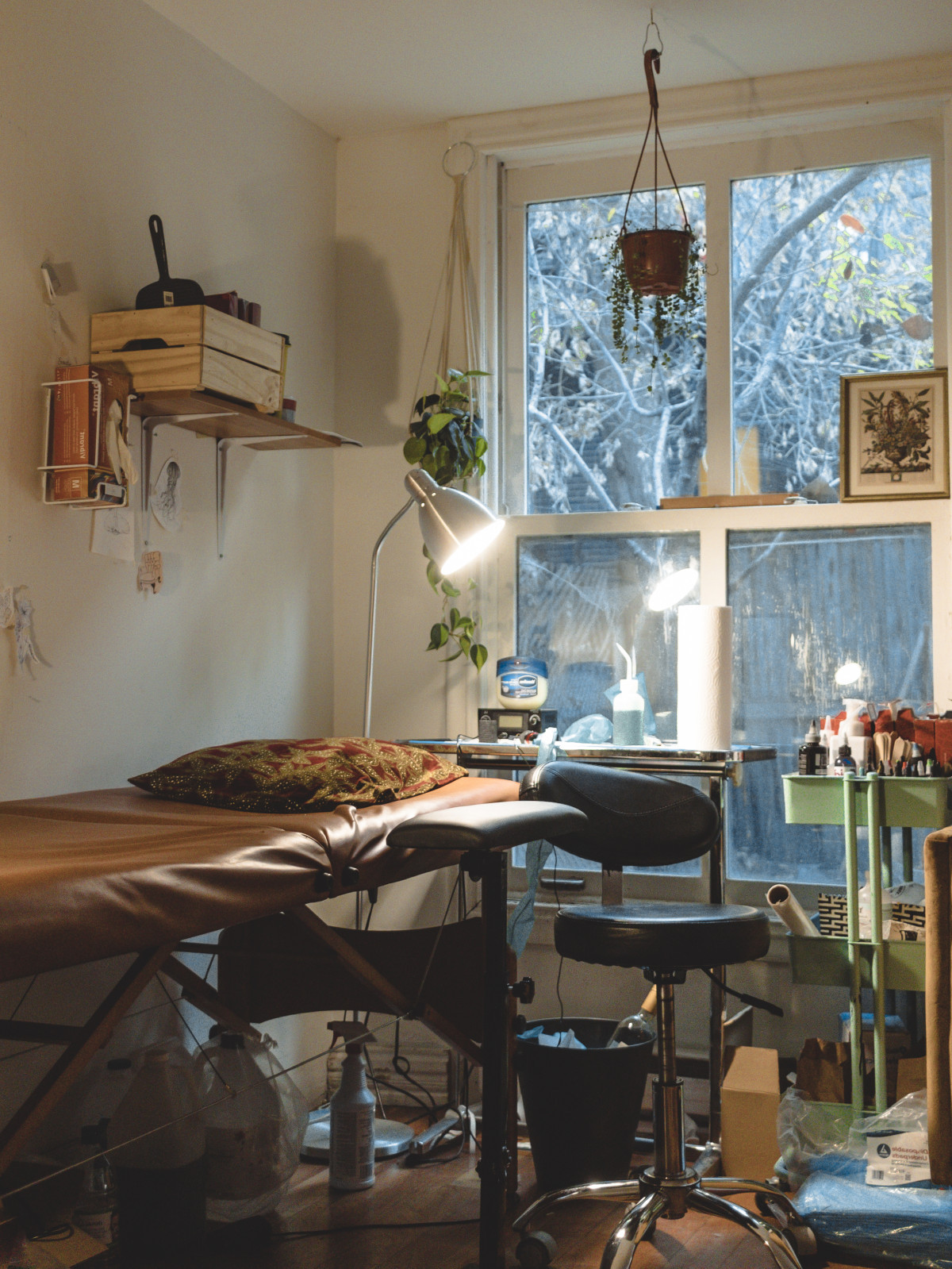
To best picture it, imagine getting your first ink in an environment designed to make you feel safe. You walk in–not to a shop, but into the artist’s home. As you enter the living room filled with plants, Buddha statues, and astrology posters. You’re offered tea, and the artist takes the time to get to know you before actually sitting down and dipping the needle in the ink. The artist asks for consent before touching you, and you would be offered coverings if the tattoo is in a sensitive spot.
This is how customers describe the home studio of Camille Martin and Claude Guérard. Aged 21 and 20 respectively, the two young women opened their private studio–Pxssy Club House Tattoo–in their Plateau apartment in 2021. Despite never undergoing professional training through mentorship as is usually the case for tattoo artists, they managed to build a loyal customer base by turning their home into a safe space where anyone can enjoy the best tattoo experience possible, all in the span of the first year of the pandemic.
Martin said a home studio makes clients more comfortable for a number of reasons, which is crucial considering the often long periods of time tattoo appointments take.
“I feel like it's super important, before bursting that little personal space bubble, to get to know [my clients] and to prove to them that you are trustworthy, and that you have nothing but good intentions,” she said. “What better way than to welcome that person into your safe haven?”
Guérard said her interest in tattooing dates back to when she was about 13. “I got kind of out of it after my parents sent me to do an internship at a tattoo shop [for] experience. It was a shop in Longueuil with animal skulls everywhere and heavy metal music. They only tattooed skulls and naked women and it really put me off as a 13-year-old girl,” she said.
“I feel like it’s super important, before bursting that little personal space bubble, to get to know [my clients] and to prove to them that you are trustworthy, and that you have nothing but good intentions.” — Camille Martin
Before the pandemic, Martin and Guérard had both given up on their artistic ambitions and worked various jobs in order to pay rent. When the first lockdown suddenly broke that routine, they made the decision to teach themselves how to ink, and it changed their lives forever.
“I was seeing the Montreal tattooing scene grow into a very welcoming space, and it kind of dragged me back into it,” Guérard said.
One thing led to another and the two friends bought an $80 tattoo machine and started practicing on things like pigskin and courageous friends.
In the conventional tattoo industry, however, self-taught tattooing is known as scratching and is extremely frowned upon. Tattoo artists consider it to be damaging for the reputation of the industry and recommend avoiding it at all costs, arguing that most scratchers practice in unsafe environments, have no professional training, and lure customers with cheap prices.
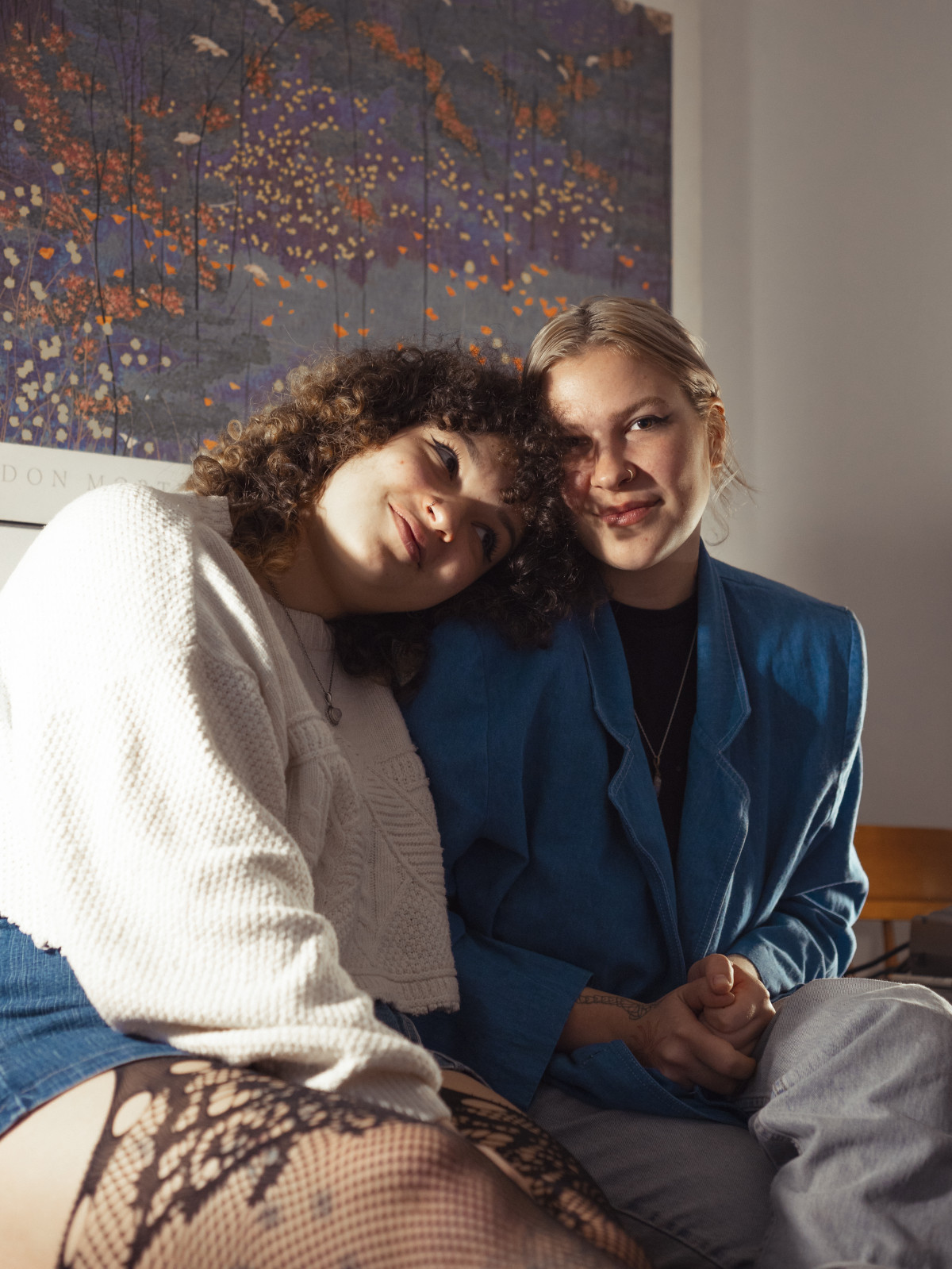
In some instances, some of these criticisms are justified, but Martin and Guérard have come a long way from tattooing friends at parties for a few bucks to growing a professional home business and make a living out of it.
“It’s kind of a boys’ club, and they want to stay on top,” Guérard said about the industry. “That's why they make it difficult for other people to get apprenticeships and say stuff like, ‘You should get an apprenticeship or you're not a real tattoo artist.’ It’s just gatekeeping.”
Tattoo artist Geneviève Farley-Tremblay, co-owner of the tattoo shop Tatouages Vilains in the Plateau, said she advises all aspirants to find a mentor in a studio, but understands people who don’t feel like tattoo shops are for them and who prefer learning at home.
“Mostly it’ll just be a much longer process to get to the level you aim for,” Farley-Tremblay said. “There’s also more risk in learning by yourself because you can be unsafe without knowing it. It can spread serious [blood-related] diseases [like] hepatitis, HIV/AIDS, infections. It can get dangerous.”
Quebec currently has no law or certification process to guarantee the safety of a tattooing environment, even for studios. There is a bloodborne pathogens training required by most shops now, and Farley-Tremblay recommends those who are interested in tattooing to take it.
Martin and Guérard confessed that their beginnings weren’t the safest, but they say they became very serious about safety as soon as their clientele extended beyond just friends.
“The second that we started to have an influx of people that we didn't personally know, we started to take it to heart,” Guérard said. “A huge part of tattooing is that you're fucking with people's [immune system], you're risking infection all the time. You have to be careful.” The two of them are planning to take further training in the coming year.
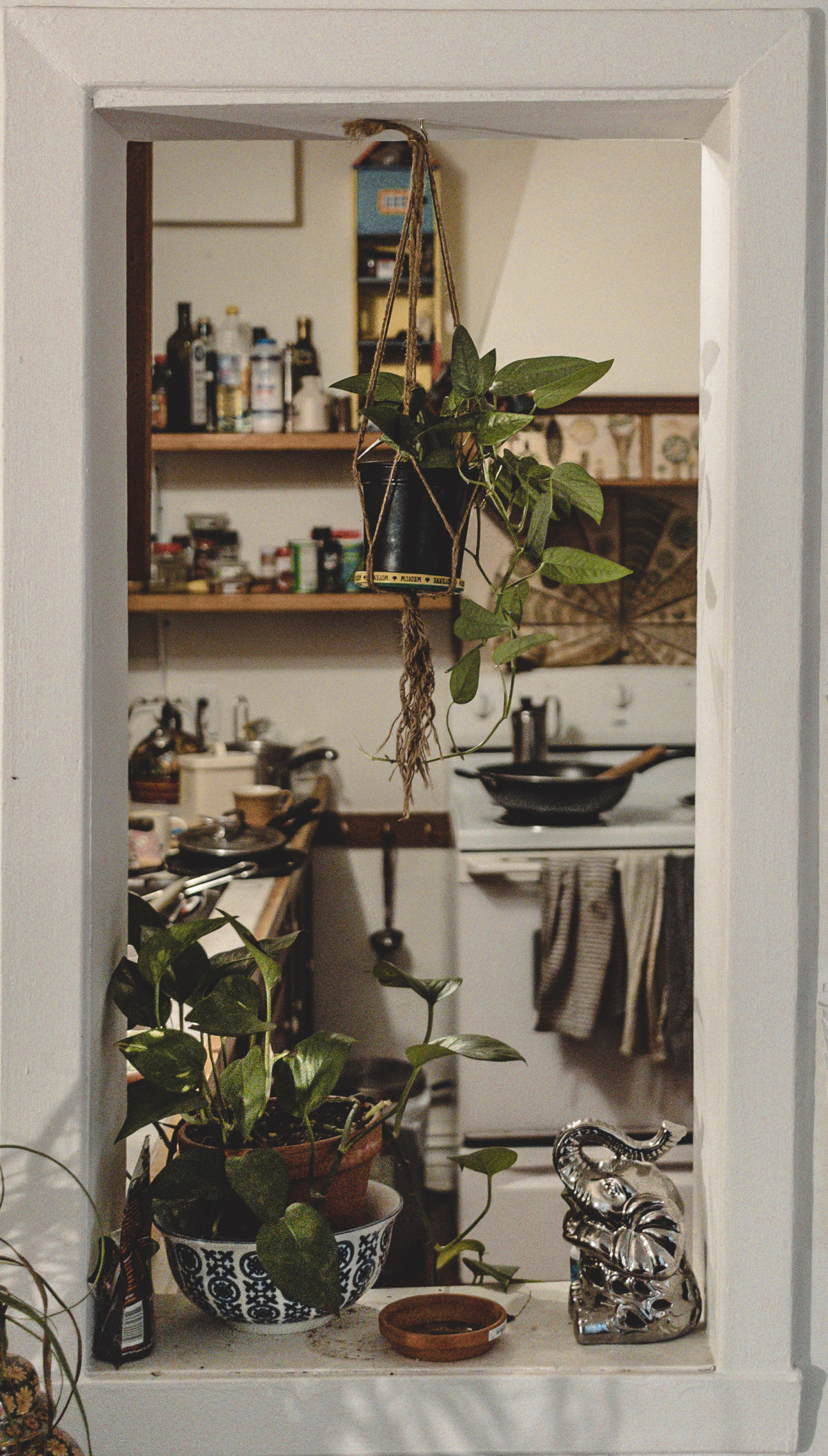
Through Instagram and word of mouth, what started as a fun hobby has turned into a profitable business. Martin and Guérard now tattoo more than 12 people a week, and demand is only increasing.
Martin said she could easily live on half the bookings she has, but demand is so high that she would be making clients wait for weeks to get their tattoos. “I just feel bad because if I put only half of them, my bookings would go up to four months from now,” she said.
According to both artists, the secret to their success is the personalized customer experience.
“When [clients] show up for their appointments, we take the time to talk about it, to really cater to each and every person's preference and style,” Guérard said.
“I like to book at least two hours, even for a small piece. We have good conversations, sometimes talk about their trauma.” Martin said. “I never found such a safe space in a tattoo shop. That's what we look for here, a community.”
All their bookings are made through social media, and because word spreads fast in the Plateau, their reputation is growing exponentially. They said when they first started out, they had in mind to eventually open a private shop which would take in minority apprentices, Black, trans, POC, queer and others, “because those are the people in the traditional industry that aren't given the light of day.” said Guérard.
However, some say the industry–even in traditional shops–is changing. “There’s way more inclusive studios opening,” said Farley-Tremblay, whose shop opened last February on Duluth St. “The first shop where I started was a ‘boys’ club’ and it was often uneasy to work in, so I get it. Here we’re mostly girls, and we do our best every day to make everyone feel welcome.”
“When [clients] show up for their appointments, we take the time to talk about it, to really cater to each and every person’s preference and style.” — Claude Guérard
Among the inclusive and body-positive shops that are emerging in Montreal, Farley-Tremblay mentioned Minuit-Dix and Désolé Maman, both located in the Mile-End.
Martin and Guérard said that the thing they like most about what they do is getting to be part of a virtuous cycle. They say they’ve met an amazing community of at-home artists through their work; a community that grew after the first lockdown.
Beyond just tattooing, they say they’ve discovered a ton of hardworking artists who make custom jewels, vintage clothes and other items from home that are eventually sold through social media. They described this community of creatives as very open-minded and say they often collaborate with each other by exchanging their craft, thus proving that even in these peculiar times, Montreal continues to be a fertile ground for those exploring the arts community.

